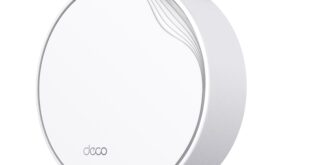The smart home is still a new concept to a lot of people, but it is a market ripe to be exploited as TP-Link UK VAR account manager Andy Woolhead explains…
Nearly half (47 per cent) of all homeowners would like to control their houses from a tablet or phone, according to a recent study by Honeywell. This is because of energy bills, convenience and flexibility. In spite of this, the argument for smart tech in the home hasn’t yet become mainstream, and some resellers are unsure it will.
Current numbers are modest, but significant growth is predicted. Around four million – around 14 per cent – UK households already have some form of smart home technology. By 2020 the number of connected devices worldwide is expected to be 26 billion. We are at the bleeding edge of a technology about to go everywhere.
Smart home technology is in its infancy, but demand is growing. According to Ofcom, nearly three quarters (71 per cent) of adults own a mobile device, and are looking for ways to maximise their usage.
Figures from June this year show a year-on-year increase of 41 per cent more data used by fixed broadband lines. Homeowners are happy to experiment with smart home technology, and are willing to spend time and money on it. This was underscored recently by one man’s 11-hour quest to make a cup of tea using a smart kettle. Amusing, yes, but also a look at the future.
The potential for smart home technology is estimated at £30 million a year and research shows that once a smart product is purchased, up to five soon follow.
“We are at the bleeding edge of a technology about to go everywhere.”
Andy Woolhead, TP-Link UK
In post austerity, cost conscious Brexit Britain, people are curious to see in real time what their home costs to run. That sort of knowledge can lead people to wanting the power and the ability to remotely control heat, light and other appliances. Utility companies that promote energy or other metering, for example, should be at the top of the list for smart home resellers to approach to build long-term partnerships and get their tech into more homes.
The current market for smart home gadgets is still with early adopters and IT enthusiasts, but the next generation is close behind as availability grows, media interest peaks and prices fall. Soon, owners and renters of new-build homes will come to expect smart home technology as standard, while renovators will look to future proof their investment.
Resellers want signs of a market tipping point. Consumers are already engaged behind closed doors. Resellers looking for solid future profit streams should engage now with housebuilding companies about the supply of smart home technology such as light bulbs and energy meters.
If the trend continues, this demand will increase and 2017 could well be the tipping point as the year of the smart home.
Andy Woolhead is the senior VAR account manager at TP-Link UK.
 PCR Tech and IT retail, distribution and vendor news
PCR Tech and IT retail, distribution and vendor news



